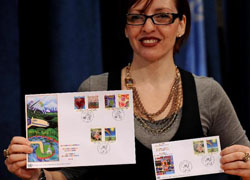What is autism
Autism is a lifelong developmental disability that manifests itself during the first three years of life. It results from a neurological disorder that affects the functioning of the brain, mostly affecting children and adults in many countries irrespective of gender, race or socio-economic status. It is characterized by impairments in social interaction, problems with verbal and non-verbal communication and restricted, repetitive behaviour, interests and activities.
The rate of autism in all regions of the world is high and it has a tremendous impact on children, their families, communities and societies.
It can bring significant economic hardships to families, given the lack of health resources often found in developing countries. The stigmatization and discrimination associated with these illnesses also remain substantial obstacles to diagnosis and treatment. The absence of autism spectrum disorders and other mental disorders among children from lists of the leading causes of death has contributed to their long-term neglect by both public policy-makers in developing countries, as well as donors.
 |
| Autism stamps unveiled at UN headquarters |
Throughout its history, the United Nations family has promoted the rights and well-being of the disabled, including children with developmental disabilities. In 2008, the Convention on the Rights of Persons with Disabilities entered into force, reaffirming the fundamental principle of universal human rights for all.?
Its purpose is to promote, protect and ensure the full and equal enjoyment of all human rights and fundamental freedoms by all persons with disabilities, and to promote respect for their inherent dignity. (Source: Text of the Convention, article 1) It is a solid tool to foster an inclusive and caring society for all and to ensure that all children and adults with autism can lead full and meaningful lives.
The United Nations General Assembly unanimously declared 2 April as World Autism Awareness Day (A/RES/62/139) to highlight the need to help improve the lives of children and adults who suffer from the disorder so they can lead full and meaningful lives.
Related:






















